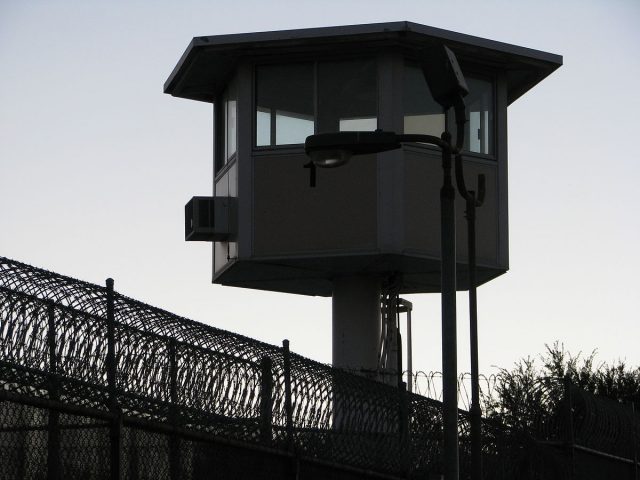Wisconsin Department of Corrections Secretary Jon Litscher stated emphatically that he will not ever use private prisons in the state of Wisconsin. Secretary Litscher’s position on prison privatization was being questioned by leaders of Madison based community organizers who were concerned about the use of private prisons after a series of scandals involving privatized prisons in Mississippi.
“As long as I am Secretary we will not use private prisons,” Litscher said in an email exchange with community leaders on Thursday.
It was the strongest Litscher has stated publicly on the topic of private prisons in Wisconsin. In 2017 Madison365 reported that Litscher had broached the topic of prison privatization while addressing a State Assembly committee. At that time Litscher had stated that using private prisons would be a last resort if the prison population continued to grow and there was nowhere else to put inmates.
Litscher continues to be concerned about the steady growth in the prison population but indicated he would not seek the use of private facilities.
DOC Spokesman Tristan Cook confirmed Litscher’s position to Madison365 on Monday morning.
“As we have indicated previously, the Department sees no need to use private prisons and has no interest in doing so,” Cook told Madison365.
Last week private prisons in Mississippi came under national scrutiny after a video showed prison guards not responding to a gang beating another inmate. In the video an inmate is seen being assaulted by several other prisoners while the prison guards took over 30 minutes to respond to the incident.
Inmates at East Mississippi Correctional Facility, which is privately run by Management & Training Corporation, resorted to setting fires in their cells in order to force guards to respond to normal security situations. Inmates also reportedly crafted knives and other weapons to protect themselves because guards were not able to, and lived under grotesque physical conditions due to the uncleanliness of the facility.
In Wisconsin, all prison facilities are owned and operated by the state. Prison guards are state employees and typically respond quickly to security situations. Violence against fellow inmates is not tolerated, units are fully staffed and day-to-day the majority of inmates are in relatively safe and clean environments.
In privately run facilities, however, this is often not the case. Private corporations have minimum inmate quotas, which means the state agrees to fill approximately 1,000 beds on average. The facilities are often poorly staffed and are not physically designed in the same way State run facilities in Wisconsin are. In Wisconsin, correctional officers are in direct contact with inmates at every moment, which is often not the case in private facilities.
Prison overcrowding in Wisconsin has reached peak levels as a result of truth-in-sentencing laws that cause prisoners to serve 100 percent of their sentences and not be eligible for parole. Prisoners sentenced before 2000 are generally eligible for parole because they were incarcerated under different guidelines that allow parole after they have done two-thirds of their time. Governor Scott Walker has greatly reduced the Parole Commission during his tenure, however, slowing to a trickle the number of inmates being released even under the older guidelines.
It is those policies that concern proponents of prison reform, such as The Prison Ministry Project Director Jerry Hancock, himself a former prosecutor. Hancock points out that major portions of the prison population could be safely released back into the community. The continued use of prison to house people struggling with addiction or poverty-based offenses is driving up the number of inmates.
The prison overcrowding that even Secretary Litscher has expressed concern about is a self-inflicted issue on the part of the Walker administration that many community leaders like Hancock feel is more the result of non-release policies than the result of some overwhelming crime wave in the community.
The concern is very real that Governor Walker would use overcrowding as justification to pursue privatized, for-profit prisons in Wisconsin.
Thus, hearing Secretary Litscher adamant about not using private prisons has alleviated the concerns expressed by community leaders like Hancock.
“Secretary Litscher’s promise that ‘as long as I am Secretary we will not use private prisons’ proves that he is a man of conscience and compassion,” Hancock told Madison365 on Wednesday. “It is also a clear message to the Governor that he can have private prisons or Jon Litscher but he can’t have both.”




























